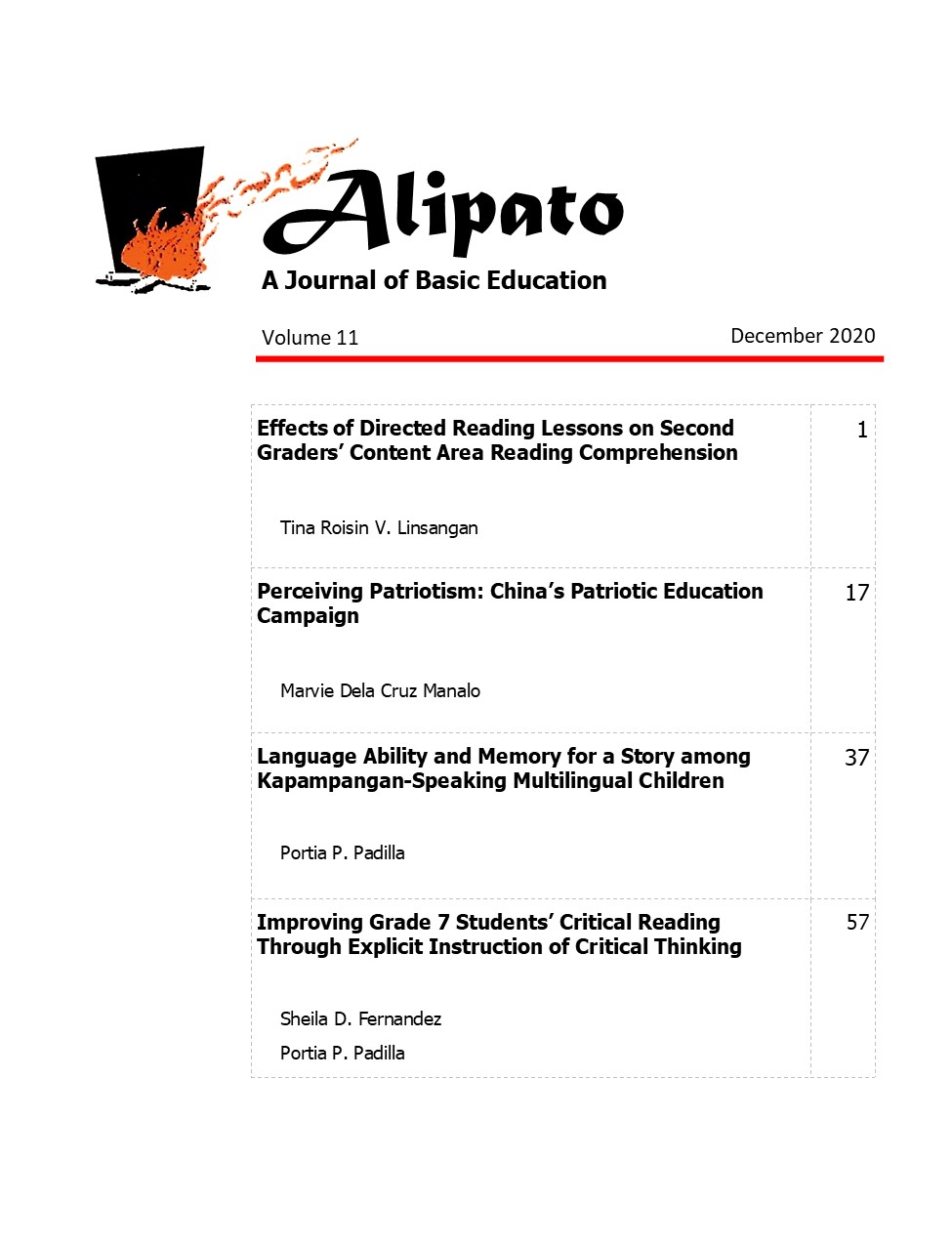Effects of Directed Reading Lessons on Second Graders’ Content Area Reading Comprehension
Abstract
Content area reading supports young children’s literacy development. This quasi-experimental research determined the effects of Directed Reading Lessons (DRLs) on second graders’ content area reading comprehension. A one group pretest-posttest design was administered to 25 second graders from a laboratory school in Quezon City. Research tools included a comprehension pretest and posttest, and independent practice activities. Results show that DRLs helped improve the comprehension of expository texts. Furthermore, it revealed that the students improved better in text-based compared to inference comprehension questions. With these results, it is concluded that DRLs are helpful in teaching primary-school-age-children. Although content area reading
is new to the students, DRLs helped them improve in their comprehension of expository texts. The independent practice activities were pilot tested and validated by experts but it was observed that some second graders had difficulty communicating their ideas in written Filipino form. Thus, checklists, observations, focus group discussions, and interviews may also be effective instruments in gathering data for these variables. Further research may examine the use of English expository texts, other levels of comprehension, and other content areas. Subsequent studies may use different populations to examine broader generalizability.
Keywords: primary-school-age-children, reading comprehension, content area reading, directed reading lessons


